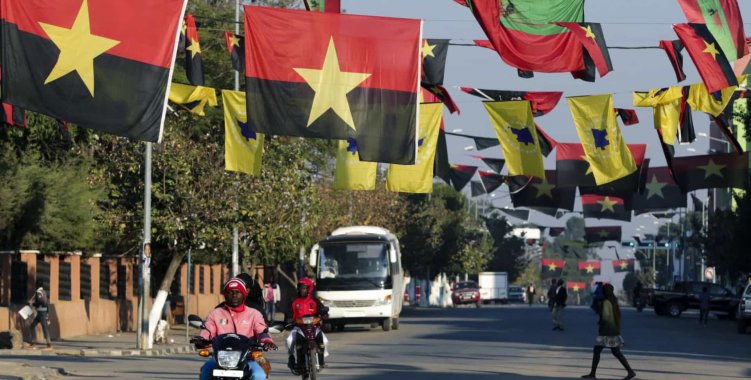The Nationalist Justice Party (P-NJANGO), led by Eduardo Chingunji, was the most recent to join this list, having been published on 23 May the order confirming the registration of the new party.
"We have in the country, at this very moment, 12 political parties with registration in force in the TC", said Mauro Alexandre, after a visit to the data processing center of the judicial body, in Luanda.
Of these, five are part of the CASA-CE coalition: the Democratic Party for Progress of the Angolan National Alliance (PDP-ANA), the Support Party for the Democracy and Development of Angola-Patriotic Alliance (PADDA-AP), the Free Alliance Party of Angolan Majority (PALMA), the Angolan Pacific Party (PPA), the National Salvation Party of Angola (PNSA).
The remaining seven are the Popular Movement for the Liberation of Angola (MPLA), the National Union for the Total Independence of Angola (UNITA), the National Front for the Liberation of Angola (FNLA), the Democratic Bloc (BD), the Renovation Party Social (PRS) and the National Patriotic Alliance (APN), in addition to the newcomer P-NJANGO.
"We also have a diverse number of installation commissions", he indicated. During this year, three more were accredited, joining the other six commissions that have their processes in progress at the TC.
The possibility of new parties appearing is less and less as the deadline for the call for general elections to be held this year approaches, which will have to happen within 90 days of the end of the current mandate (João Lourenço was sworn in on 26 September 2017).
"This does not depend on the TC, it is up to the political parties to give the respective impetus to their processes. Therefore, if the parties bring the signatures and all the necessary elements for registration purposes, the TC, what will do, is the appreciation of the process and, if it is in accordance with the law and meets the requirements, naturally, we can have more political parties, but it all depends on them", said the same official, adding that, once the elections are called, legalization for the purposes of candidacy.
He believes, therefore, that the installation commissions that emerged more recently, meeting the requirements required by law "will not have time to see themselves legalized as a party until the date of the call for elections, given the technical and operational work necessary for the validation of signatures ".
In addition, priority will be given to older processes whose signatures are in the process of being verified.
This year, the accreditation of six installation commissions was also canceled, some whose registration did not meet the legal requirements and others because they did not meet the deadlines for registration, according to the same official.
The TC is the entity responsible for the legalization of parties in Angola, which only acquire legal personality upon registration in their own register.
Until then, according to the law on political parties, an Installing Committee will have to be appointed, which takes care of the preparations for the organization of the party for the purpose of registration and asks the TC for its accreditation, presenting the objectives of the constitution of the party and its program, party's statutes and naming projects, as well as documents proving the assets and financial resources available to start its activities.
The registration of parties must be based on an application that gathers a minimum of 7500 signatures from citizens over eighteen years of age with at least one hundred and fifty residents in each of the provinces that make up the country, accompanied by their identification documents and a express declaration of acceptance by each subscriber.
The decision on the request rests with the President of the Constitutional Court, who assesses the identity, similarity or evocation of the names, acronyms and symbols of the parties, the fulfillment of the requirements established in the previous article, and the compliance of the Statutes and Programs with the law.







